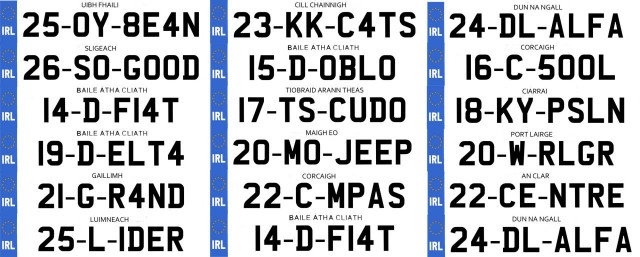During December's budget the Government sought consultation from interested parties on proposals to re-align the VRT and Motor Tax rates. In response Fiat Group Automobiles Ireland (FGAI) has issued an impassioned plea not to hit hard-pressed motorists with further tax hikes that could have a damaging effect on the Irish motor industry. It instead offers some interesting alternatives.
Foremost amongst these is a move to a UK-style bi-annual number plate system. The scheme, first put forward by the Society of the Irish Motor Industry (SIMI), would combat the historic seasonality in the Irish motor trade with sales spread out more evenly over the year instead of front loaded into the first quarter as buyers rush to get New Year plates. FGAI feels that, in the digital age, the need to have a year identifier is not as prevalent as it was 25 years ago when the current system was introduced. At the time of introduction the system allowed consumers to quickly identify the age of a car via the number plate, but with the advent of smartphones and services such as Cartell.ie this information can be quickly accessed.
A move away from the age identifying system would, FGAI says, remove fears of a downturn in car sales next year due to '13' plates. A bi-annual system would allow the unlucky number to be skipped entirely with the plates picking up the next convenient number, in this case 14, before switching six months down the line. Under the proposal number plates could read as 14-D-1234 and 24-D-1234.
FGAI's proposal also suggests the possibility of re-registration to allow buyers of used cars to register a car in their home county rather than that of the first registered owner. It says that such a move would facilitate greater movement of vehicles around the country, boosting resale values.
The final part of the FGAI proposal is probably the most controversial but one that could actually make money for the exchequer. The introduction of letters in addition to numbers would reduce the characters on number plates making them easier to read but would also allow for so called 'vanity' plates. Like them or not the plates could feasibly bring €1.5 million into the state coffers annually.

